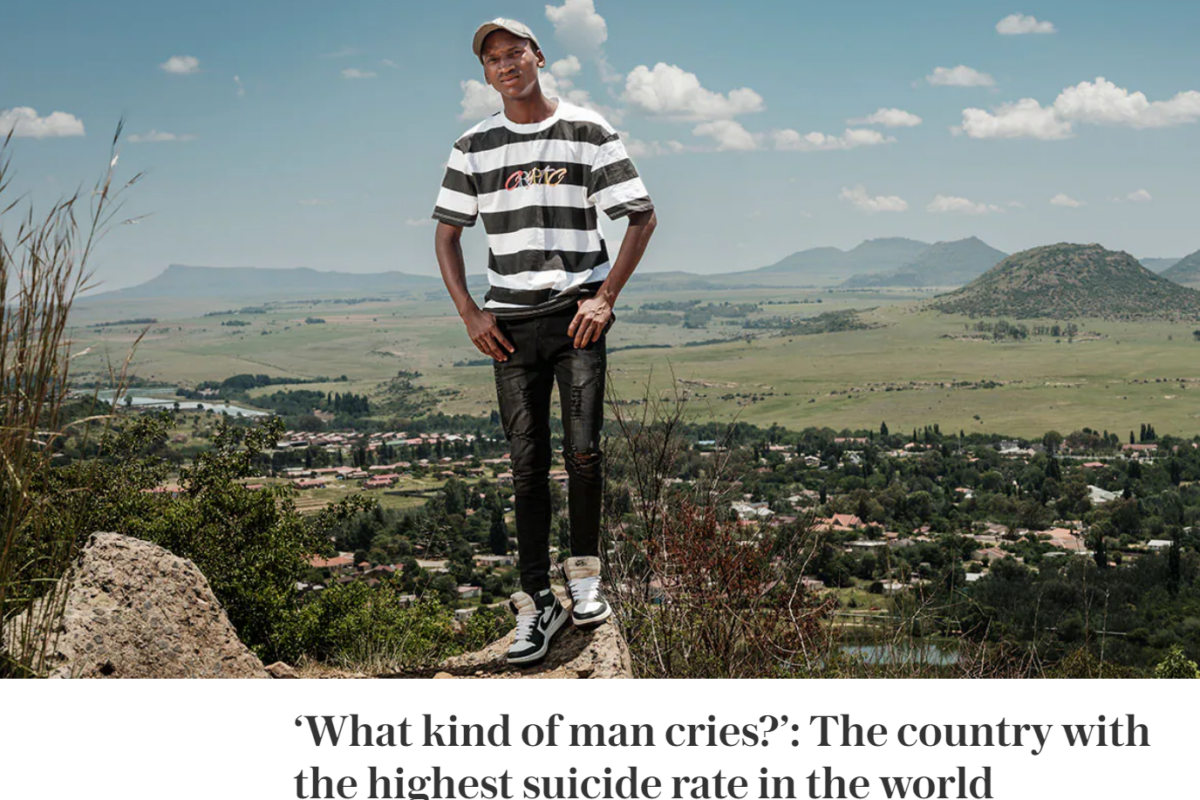Lesotho – looking for hope behind the highest suicide rate in the world.
While Africa has 6 of the 10 countries with the highest suicide rates in the world, heartbreakingly Lesotho, a country of just 2.3 million people, has the world’s highest rate (age adjusted), with 87.5 deaths by suicide in every 100,000 (compared to the age unadjusted global average of 1 per 100,000). A recent story in the UK Telegraph provides insight into the deep stigma around suicide in Lesotho that is costing lives to suicide – deaths that could be prevented.
“The depth of social, religious and cultural practices across Africa – and we see here in Lesotho – that stigmatise suicide make preventing deaths by suicide so much more difficult. And this is the real human tragedy – because these are needless deaths, these are lives that can be saved, simply by asking for help. But so many of the same social pressures that often cause suicidal distress also inhibit people from asking for help,” said Professor Taiwo Lateef Sheikh, LifeLine International’s African Representative, and a leading psychiatrist, and authority on suicide prevention and suicide decimalisation in Africa
“In reading this article, I was so touched by the lived experience of this young man, Lisema Pinyane, that really highlighted two things for me.
“Firstly, his bravery in sharing his story so others may understand that asking for help is OK; and secondly, the power of human connection to break the isolation and feeling of worthlessness that too often sets individuals toward a course of fatal harm.
“The simply checking in on their friend saved this young man’s life, and that powerful act of humanity always reinforces my hope, that suicide, everywhere, can be prevented. And this is the role that crisis lines play – a confidential, accessible human connection in times of deepest despair,” he said.
LifeLine International has 9 Members across Africa, operating crisis support services that use a range of multi-lingual telephone, voice and data services to connect counsellors with help seekers. Ideally services operate 24 hours and with toll free numbers – but this is not yet the case everywhere. With suicide rates in Africa so high, especially amongst young people and men, LifeLine International is working across the continent to expand crisis support services and to support decriminalisation campaigns in the 11 African nations where suicide remains a crime. To date there are positive signals on legal reform in Nigeria, Kenya and Malawi – countries that are a focus for LifeLine International’s campaign Decimalise Suicide Worldwide.
“Suicide is not a crime in Lesotho, but the deep stigmas described in this story are further entrenched where suicide is a crime. Imagine adding on top of all the distress and despair felt by someone thinking of taking their life – the threat of jail just for asking for help. It pushes the possibility of help even further out or reach, and that is a tragedy on tragedy.
“But we know when countries decriminalise it’s a powerful signal for a broad community conversation, relevant to all the specific factors in that country, to say that it is ok to ask for help. And asking for help saves lives,” Professor Sheikh added.
LifeLine International applauds the Telegraph and its Global Health Security initiative for highlighting this story with sensitivity and insight and for sharing a message that there is always hope.
To learn more about how to help to Decriminalise Suicide Worldwide read here Lifeline International Campaign page or join our social change campaign at 25crimes.org or register for national campaigns where suicide remains a crime (25 countries) or its legal status remains unclear (27 countries).
